Types of Roofing Materials
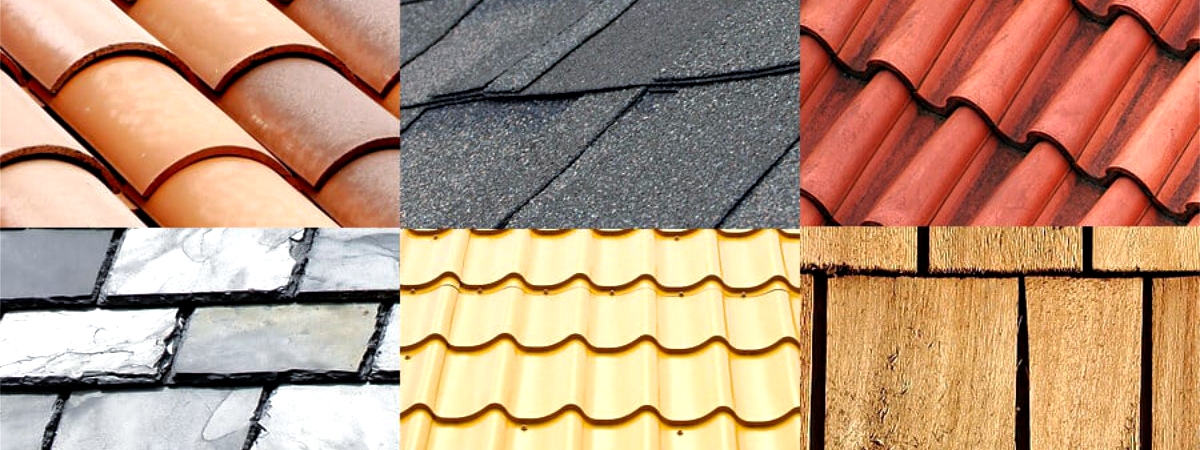
Whether you prefer the timeless allure of asphalt shingles, the enduring strength of metal roofing, or the rustic charm of wood shingles and shakes, Pro Roofing Masters has the perfect solution for you. Our range also includes the classic elegance of clay and concrete tiles, the unmatched durability of slate roofing, and the versatile appeal of synthetic materials.
At Pro Roofing Masters, we’re more than just experts; we’re your trusted partners in creating roofing solutions that go beyond expectations. Our commitment extends to crafting roofs that not only provide protection but also enhance the charm and resilience of your home.
Begin your journey to a superior roofing experience by reaching out to us today. Let Pro Roofing Masters guide you through the diverse options available in the Los Angeles roofing landscape and provide you with excellence in the industry.
Asphalt Roofing
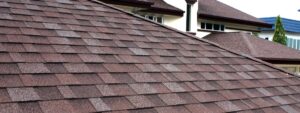
Asphalt shingles stand out as a prevalent choice among homeowners, renowned for their blend of durability and affordability. This versatile roofing material offers several advantages that make it a top pick for residential roofing projects.
- Cost-effectiveness: One of the primary reasons behind the widespread popularity of asphalt shingles is their cost-effectiveness. Compared to many other roofing materials, asphalt shingles are relatively inexpensive, making them an attractive option for homeowners on a budget.
- Class A fire rating: Safety is paramount when it comes to roofing materials, and asphalt shingles boast a Class A fire rating. This rating signifies that they provide excellent fire resistance, adding an extra layer of protection to your home.
- Stands up against the elements: Asphalt shingles are designed to withstand various weather conditions, including rain, wind, and even hail. Their sturdy composition helps them maintain their integrity over time, ensuring long-term performance and protection for your home.
- Completely customizable: Another advantage of asphalt shingles is their versatility in design and appearance. With a wide range of colors, styles, and textures available, homeowners can customize their roofing to match their aesthetic preferences and complement the architectural style of their property.
In summary, asphalt roofing offers a winning combination of affordability, safety, durability, and customization options, making it a practical and appealing choice for homeowners looking to enhance the value and protection of their homes.
Metal Roofing
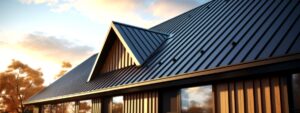
Metal roofing has experienced a surge in popularity in recent years, transitioning from its traditional use in commercial properties to becoming a sought-after option for residential homes as well. The appeal of metal roofing lies in its numerous advantages that cater to the modern homeowner’s needs and preferences.
- Long-lasting and Durable: One of the standout features of metal roofing is its exceptional longevity and durability. Unlike traditional asphalt shingles that may need replacement every 15 to 30 years, metal roofs are built to last a lifetime. With proper maintenance, a metal roof can easily surpass 50 years of service, providing long-term peace of mind for homeowners.
- Energy Efficient through Summer and Winter: Metal roofing is prized for its energy-efficient properties, offering significant savings on heating and cooling costs throughout the year. During the hot summer months, metal roofs reflect solar heat, reducing the need for air conditioning and keeping interior spaces cooler. In winter, metal roofing helps retain heat inside the home, minimizing reliance on heating systems and contributing to lower energy bills.
- Environmentally-friendly: For eco-conscious homeowners, metal roofing presents an environmentally-friendly choice. Metal roofs are often made from recycled materials, and they themselves are fully recyclable at the end of their lifespan. Additionally, the energy-saving benefits of metal roofing translate into reduced carbon emissions, making it a sustainable option for environmentally-responsible households.
- Available in a Variety of Styles and Colors: Contrary to the misconception that metal roofing only comes in industrial-looking panels, modern metal roofing is available in a diverse range of styles and colors to suit any architectural aesthetic. Whether you prefer the sleek look of standing seam panels or the classic appearance of metal shingles that mimic traditional roofing materials like wood or slate, there’s a metal roofing option to complement your home’s design.
In summary, metal roofing offers homeowners a winning combination of durability, energy efficiency, environmental sustainability, and aesthetic versatility. As the trend towards metal roofing continues to grow, more homeowners are discovering the benefits of this versatile roofing material for their homes.
Slate Roofing
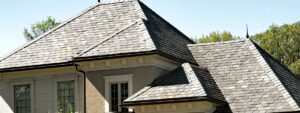
Slate roofing stands as a testament to timeless elegance and enduring durability. Crafted from natural stone, slate roofing offers a high-end solution that can grace your home for over 50 years with proper maintenance.
- Aesthetically Appealing: One of the most striking features of slate roofing is its aesthetic appeal. The natural variation in color and texture of slate tiles adds a touch of sophistication and charm to any architectural style. Whether your home exudes traditional elegance or modern minimalism, slate roofing seamlessly complements the aesthetic.
- Mold and Fire-Resistant: Slate is inherently resistant to mold and mildew growth, making it an ideal choice for regions with high humidity levels. Additionally, slate’s natural composition renders it highly fire-resistant, providing an extra layer of protection for your home and loved ones.
- Stands Up Against Wind and Rain: Slate roofing is renowned for its durability and ability to withstand harsh weather conditions. Its dense, solid structure makes it resistant to wind uplift and ensures that it remains steadfast against heavy rains and storms. With slate roofing, you can enjoy peace of mind knowing that your home is well-protected, no matter what nature throws its way.
- Eco-Friendly: As a natural stone material, slate roofing is environmentally friendly and sustainable. Its longevity means fewer resources are needed for replacements or repairs over time, reducing the environmental impact associated with roofing materials that require frequent replacement. Additionally, slate is a naturally occurring material, making it a renewable resource that can be responsibly sourced.
Slate roofing offers a combination of unparalleled beauty, longevity, and sustainability that few other roofing materials can match. With its aesthetic appeal, resistance to mold and fire, durability against wind and rain, and eco-friendly characteristics, slate roofing stands as a top choice for homeowners seeking a high-end roofing solution that will stand the test of time.
Cool Roofs: Enhancing Energy Efficiency
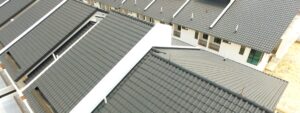
For conscientious homeowners looking to reduce their energy consumption and environmental impact while also enhancing the longevity of their roofs, cool roofs present an ideal solution. Cool roofs are specially designed to reflect more sunlight and absorb less heat than traditional roofing materials, resulting in a cooler indoor environment and reduced reliance on air conditioning. Let’s explore the benefits of cool roofs in more detail:
- Lower Energy Use: Cool roofs are engineered to reflect sunlight, which reduces the amount of heat transferred to the interior of the building. By maintaining lower indoor temperatures, cool roofs help decrease the need for air conditioning during hot summer months, thereby lowering energy consumption and utility bills.
- Environmental Impact: By reducing energy consumption, cool roofs contribute to a significant decrease in greenhouse gas emissions associated with electricity generation. Additionally, cool roofs help mitigate the urban heat island effect by reducing surface temperatures in urban areas, thereby improving air quality and enhancing overall comfort for residents.
- Long-Lasting and Durable: Cool roofing materials are designed to withstand prolonged exposure to sunlight and weathering while maintaining their reflective properties. These materials are typically constructed from highly durable materials such as reflective coatings, tiles, or metal roofing, ensuring long-term performance and minimal maintenance requirements.
In conclusion, cool roofs offer a multitude of benefits for homeowners seeking to improve energy efficiency, reduce their carbon footprint, and enhance the durability of their roofs. By investing in a cool roof, homeowners can enjoy lower energy bills, contribute to environmental sustainability, and extend the lifespan of their homes. Contact us today to learn more about cool roofing options and start reaping the rewards of a more energy-efficient home.
Synthetic Roofing Materials
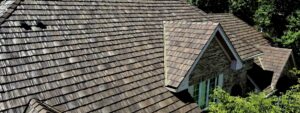
Synthetic roofing materials, including synthetic slate, rubber shingles, and composite roofing, provide an alternative to traditional natural materials while offering comparable aesthetics and additional benefits. Synthetic slate mimics the appearance of natural slate but is manufactured using composite materials, providing a lightweight and cost-effective alternative. Rubber shingles, often made from recycled materials, offer durability and flexibility, making them resistant to impact and extreme weather conditions. Composite roofing combines various materials to create a durable and versatile roofing option suitable for a wide range of architectural styles.
Synthetic roofing materials offer several advantages over their natural counterparts. Firstly, they are lightweight, making them easier to install and reducing stress on the roof structure. Additionally, synthetic materials are highly durable, withstanding harsh weather conditions and resisting damage from impacts. Another significant advantage is affordability; synthetic roofing materials are often more cost-effective than natural alternatives, making them accessible to a broader range of homeowners. Furthermore, synthetic options come in a plethora of colors and styles, allowing for customization to match any architectural design. Moreover, synthetic materials may offer enhanced resistance to weathering and impact, providing long-lasting performance and protection for your home.
While synthetic roofing materials offer many benefits, it’s essential to consider some key factors before making a decision. Quality may vary among synthetic products, so it’s crucial to choose reputable brands known for their reliability and durability. Additionally, while synthetic options may be more cost-effective upfront, it’s essential to consider their longevity compared to natural materials. While some synthetic roofing materials may offer comparable durability, others may have a shorter lifespan, requiring more frequent replacement or maintenance. Therefore, it’s essential to weigh the cost savings against the potential long-term expenses associated with repairs or replacements. Ultimately, consulting with a professional roofing contractor can help you make an informed decision based on your specific needs and budget.
Roof Seal
Roof sealants, often referred to as roof seal, are essential protective coatings applied to roofs to safeguard them from various environmental elements. Let’s delve into the intricacies of roof sealants, covering their types, applications, benefits, and importance in maintaining a resilient roof.
Types of Roof Sealants:
- Silicone Sealants: Renowned for their durability and flexibility, silicone roof sealants offer exceptional waterproofing and UV resistance properties. They are ideal for areas with extreme temperature fluctuations and are suitable for both residential and commercial roofs.
- Acrylic Sealants: Acrylic roof sealants are water-based and easy to apply. They provide good adhesion to different roofing materials and offer decent weather resistance. Acrylic sealants are commonly used for minor roof repairs and maintenance tasks.
- Polyurethane Sealants: Polyurethane roof sealants are highly durable and flexible, with excellent adhesion properties. They can withstand harsh weather conditions and are commonly used for sealing seams, joints, and flashing on flat roofs.
- Asphalt-Based Sealants: Asphalt roof sealants are affordable and provide excellent waterproofing properties. They are suitable for various roofing materials, including asphalt shingles and metal roofs, but may require more frequent maintenance.
Applications of Roof Sealants:
- Leak Repairs: Roof sealants are applied to repair leaks and prevent water intrusion into the building’s interior. They can be used on flashing, vents, skylights, and roof penetrations to create a watertight seal.
- Damage Prevention: Regular application of roof sealants helps prevent damage caused by UV radiation, moisture, and environmental pollutants. By sealing cracks, gaps, and seams, they protect roofing materials from deterioration and extend their lifespan.
- Energy Efficiency: Some roof sealants are formulated to improve energy efficiency by reducing heat transfer and air infiltration. By sealing air leaks and enhancing insulation, they help maintain consistent indoor temperatures and reduce energy costs.
Benefits of Roof Sealants:
- Waterproofing: Roof sealants create a protective barrier that prevents water from penetrating the roof surface, reducing the risk of leaks and water damage.
- Durability: High-quality roof sealants offer long-lasting protection against weathering, UV exposure, and environmental factors, ensuring the integrity of the roof for years to come.
- Flexibility: Roof sealants remain flexible and elastic, accommodating the natural movement of the roof caused by temperature changes and settling.
- Easy Application: Many roof sealants are available in user-friendly formulations that can be applied with a brush, roller, or caulking gun, making them suitable for DIY projects and professional applications.
Importance of Roof Sealants:
Roof sealants are essential for maintaining the integrity and longevity of your roof. They protect against leaks, damage, and energy loss, preserving the structural integrity of your property and ensuring a comfortable indoor environment. Regular application of roof sealants can extend the lifespan of your roof and reduce the need for costly repairs or replacements.
In conclusion, roof sealants play a vital role in protecting and maintaining the integrity of your roof. Whether you’re repairing leaks, preventing damage, or enhancing energy efficiency, choosing the right roof sealant is crucial for ensuring the long-term performance and resilience of your roof. Be sure to select a high-quality sealant appropriate for your roof type and application needs, and follow manufacturer recommendations for proper installation and maintenance.